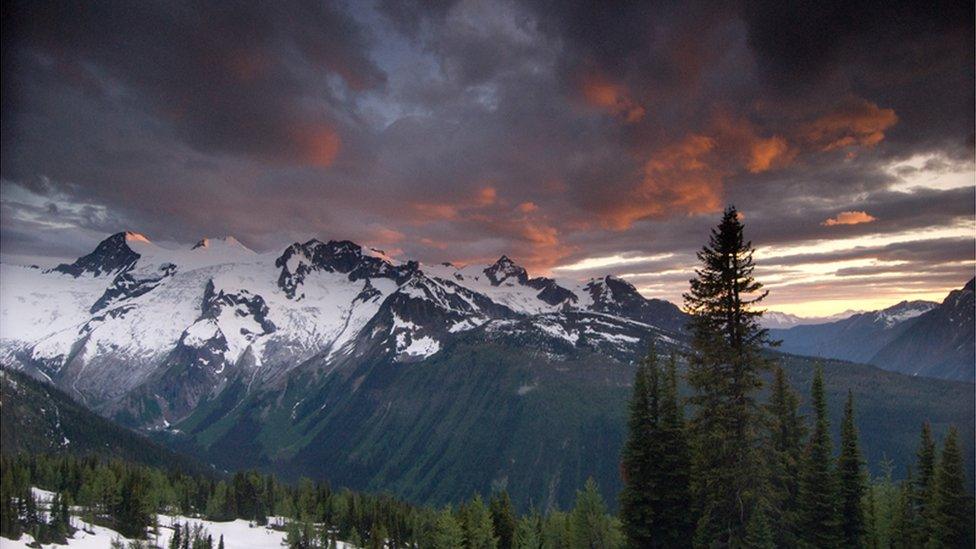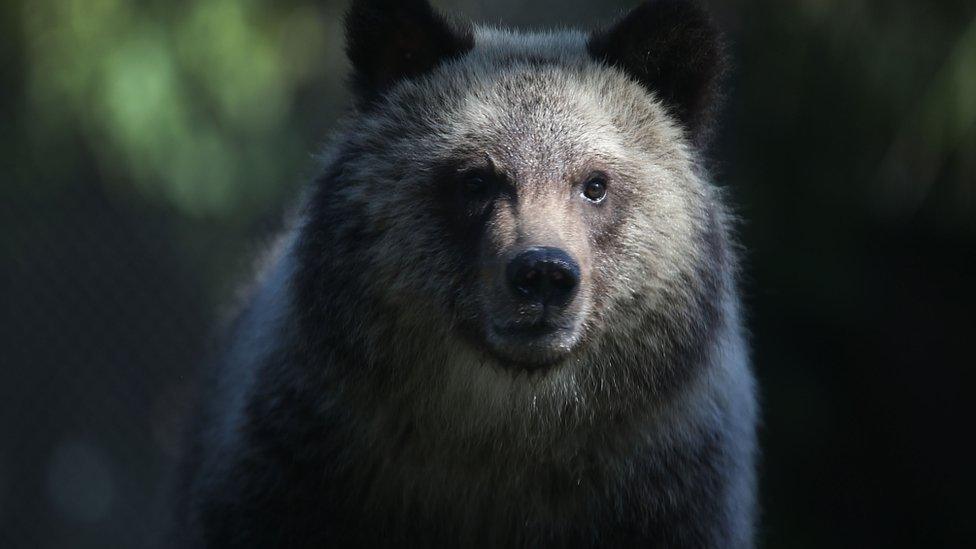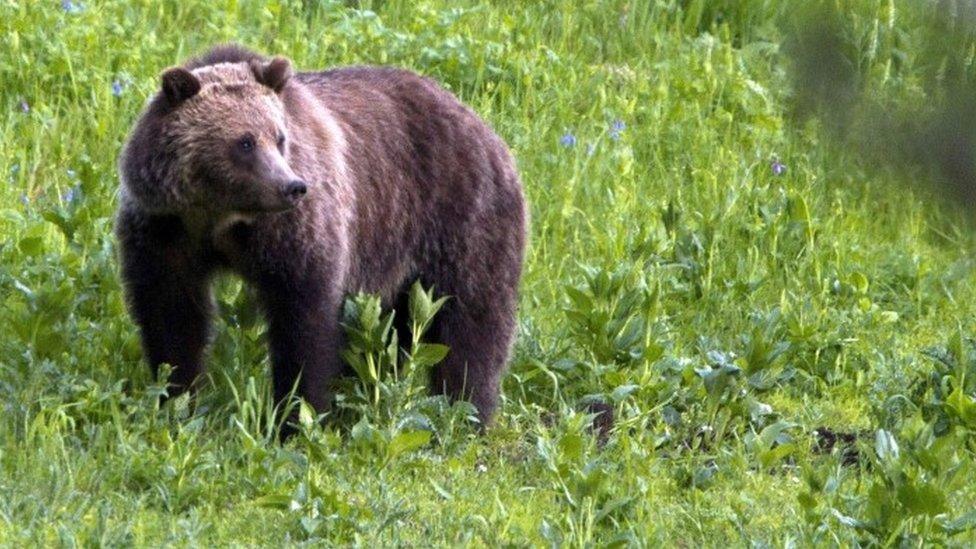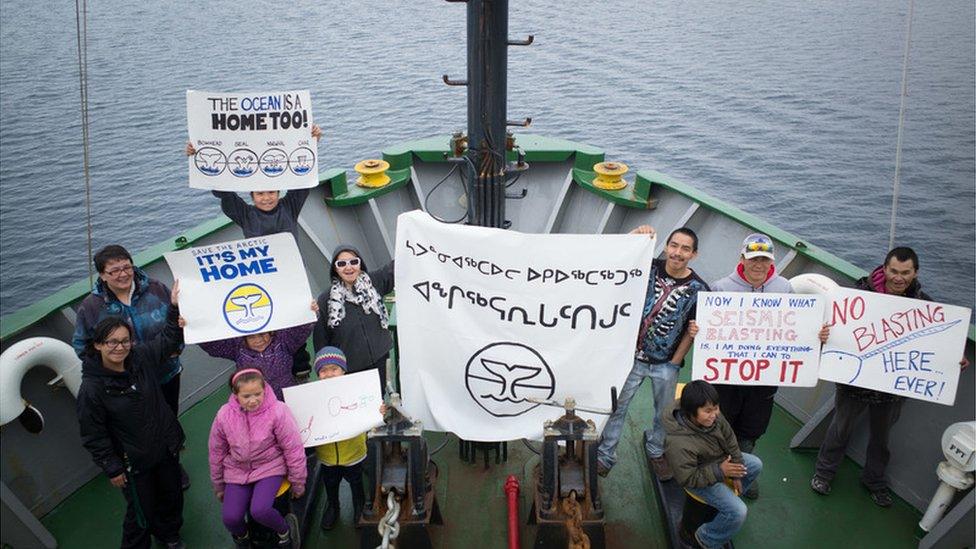'Grizzly Bear Spirit' case at Canada's Supreme Court
- Published

The Ktunaxa Nation Council are battling a proposed ski resort in British Columbia's Jumbo Valley
A landmark religious freedom case between a ski resort and a First Nation will play out in Canada's highest court.
The Ktunaxa First Nation say the resort would desecrate land where their sacred Grizzly Bear Spirit lives.
British Columbia says adequate accommodations have been made.
It will be the first time the Supreme Court determines the merits of an indigenous religious freedom claim under the Canada's rights charter.
In March 2012, the British Columbia (BC) government approved the disputed Jumbo Glacier ski resort development planned in a remote valley in the province's mountainous southeast.
The contentious project would be built on the site of an abandoned saw mill in remote BC, in a region revered by backcountry skiers and snowboarders for its deep snow, wilderness, and stunning beauty. It is also a significant grizzly bear territory.

The region is a grizzly bear habitat
The Ktunaxa Nation have resisted a scheme to build the Jumbo Valley resort since it was first proposed in 1991.
They challenged the BC government's approval in court, saying the province failed to properly consider the sacred significance of the area. Both the BC Supreme Court and BC Court of Appeal have dismissed the Ktunaxa Nation claim.
The Ktunaxa say the site, which they call "Qat'muk" is "where the Grizzly Bear Spirit was born, goes to heal itself, and returns to the spirit world".
They are arguing the bear spirit would leave the area if the resort is built and they would no longer have access to its spirit and guidance.
British Columbia Civil Liberties Association (BCCLA) executive director Josh Paterson says the Supreme Court hearing on Thursday will be the first time First Nations spirituality is considered in land use decisions like the Jumbo Valley resort.
"People would understand if this were a proposal that would destroy the Church of the Nativity in Bethlehem or the Temple Mount," he said.
The BCCLA is among the many interveners in the Charter of Rights and Freedoms case.
Other Ktunaxa Nation allies include locals, conservationists and California-based alpine outfitter Patagonia, which has thrown its support behind, external a campaign to "Keep Jumbo Wild" and financed a documentary on the tug-of-war over the resort.
Another First Nation, the Shuswap Band, which also has claims to the territory, have supported the Jumbo Valley ski resort proposal since 2004, when it first received its environmental certificate. That certificate has since expired.
Oberto Oberti, the Vancouver-based developer behind Jumbo Glacier Resort, said he still hopes he and his partners will one day build a four-season glacier skiing destination in the valley.
He said they have tried to address concerns and adjust the project to accommodate the local community over the last 20 years.
And Oberti says he does not believe the resort would violate anyone's ability to believe in their faith or to practise it but is leaving it up to "constitutional scholars" to debate its impact on religious freedoms.
"We are just architects and will stick to that," he said.
- Published30 June 2016

- Published30 November 2016
